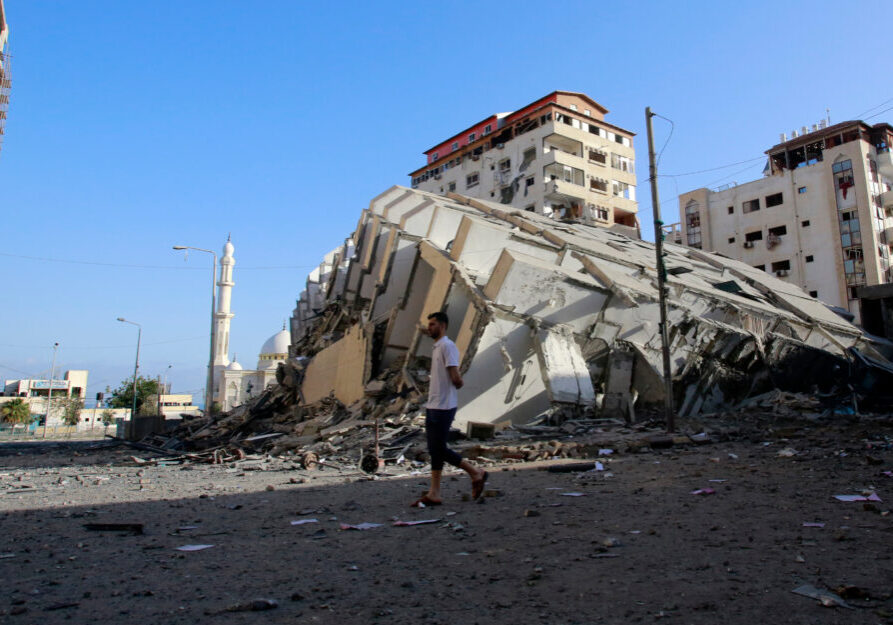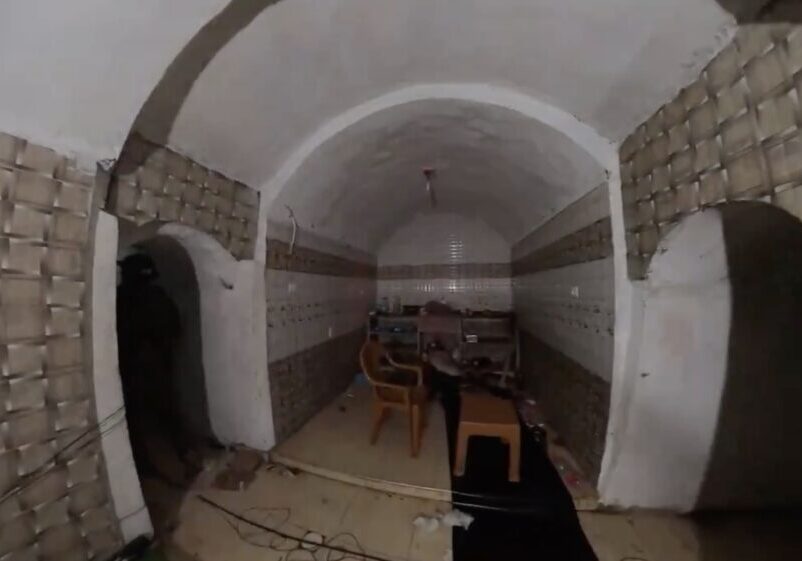Australia/Israel Review
Editorial: The Clash
Jul 3, 2006 | Colin Rubenstein
Colin Rubenstein
The dust has settled from the deadly explosion on a Gaza beach on June 9, and it is clear that Israel was not responsible for that tragedy. But the facts of Israel’s innocence aren’t likely to matter much, either to the victims’ families, or in terms of the political fallout from this terrible event. The major effect has been that the Hamas government has used the incident to escalate their violent confrontation with the nationalistic Fatah faction of PA President Mahmoud Abbas.
Recent weeks have witnessed an orgy of tit-for-tat intra-Palestinian violence, including Hamas rocket attacks on the Fatah-linked Preventive Security Agency, and an anti-Hamas rampage by Fatah gunman against the Palestinian parliament building in Ramallah.
This infighting diminishes even further the possibility that the Abbas proposal for a referendum on the “Prisoners’ National Reconciliation Document” will proceed. While some have tried to portray the “Prisoners’ Document” as the foundation for peace negotiations, this interpretation has not been helped by the fact that the memorandum’s Hamas prisoner signatories have subsequently resiled from it.
And the focus of Abbas’ referendum idea was never really about negotiations with Israel. It is a gambit by the Palestinian President to regain some of the authority he has lost to Hamas in recent months.
Moreover, even if it somehow reached a vote and passed, the “reconciliation document” is unhelpful even as a basis for negotiations on a two-state solution and doesn’t address adequately the demand of the “Quartet” (US, UN, EU and Russia) that the Hamas-led Palestinian Authority recognise Israel, renounce terror and accept the validity of existing agreements.
The portion of the document said to implicitly recognise Israel states, “The Palestinian people…are seeking to liberate their lands and achieve freedom, the right of return, and independence, including the establishment of an independent Palestinian state…on all the territories occupied in 1967.” In other words, it commits no one to recognising Israel — it is perfectly consistent with it to argue that Palestinians should first establish a state within the 1967 boundaries, and then use that state to “liberate” the rest of the “Palestinian lands.”
The document also only calls for “concentrating resistance in the territories occupied in 1967,” leaving open the possibility of continuing some violent “resistance” on the Israeli side of the Green Line. Finally, the “reconciliation plan” is unambiguous in demanding a “right of return” to Israel for the descendants of refugees from the 1948 war, a legally baseless “right” that means the demographic destruction of Israel, and is therefore a deal breaker.
Nonetheless, any hope for a more peaceful future requires that either Hamas moderate its policies and accept the Quartet’s conditions – which looks extremely unlikely – or that the Hamas government leaves office perceived as a discredited failure. Abbas’ referendum was a chance to advance these goals, but is looking unlikely to ever go ahead now that Hamas used the Gaza beach incident as an excuse to officially resume terror attacks against Israel, at least temporarily, and for upping the ante in its fight with Fatah.
This terror decision is not likely to have major effects in itself, since Hamas has already been allowing other groups to launch attacks against Israel, and aiding them in various ways, including supplying many of the rockets that are being fired into Israel each day. However, violence will now increase, with Hamas using the Gaza beach incident to the maximum possible effect in its power struggle with Fatah. It is very difficult to imagine that the referendum can overcome Hamas’ active opposition, given their power both in cabinet and on the streets.
The timing is particularly unfortunate. Under new Prime Minister Ehud Olmert, Israel is committed to implementing a bold “convergence” plan over the next few years. This means initially attempting to negotiate a way forward with the Palestinians. However, if this proves impossible, Israel would pull out unilaterally from most of the West Bank, removing many settlements, and setting security borders. There is currently therefore an historic opportunity to create the basis of a Palestinian state by mutual agreement, which is likely to go begging as long as Hamas remains in power.
In fact, with Hamas controlling the education system, inciting and further radicalising a new generation of Palestinian youth, and building up military forces and stockpiles of rockets for use whenever it seems most tactically effective, a long Hamas rule could effectively kill peace prospects for a generation.
This is why Abbas’ referendum had some merit, even if the “reconciliation” document contains many dangerous clauses which bode poorly for the future. For, if it passed against Hamas opposition, it might have given Abbas the democratic legitimacy he needs to exercise his constitutional right to dissolve the government and call new elections. At the very least, it would give Abbas some leverage to force Hamas to accept as binding the results of any negotiations he holds with Israel, something Hamas has rejected up until now.
At the moment, though, with Hamas likely to neutralise Abbas’ referendum initiative, and Fatah-Hamas civil conflict escalating, the “convergence” plans looks likely to be yet another missed opportunity to make major progress toward a lasting two-state resolution of the conflict.
With Hamas in the Palestinian driver’s seat, there literally is no one for the Israelis to talk with on the other side. One wonders how long it will take for the Palestinians to realise finally that their stubborn refusal to accept Israel’s right to exist is not a virtue, but a vice, and a self-destructive one.
While no one would argue that the current round of Fatah-Hamas clashes are a good thing, there is some hope that they may, in the long run, contribute to the one development that really would improve the lives of Palestinians — a leadership able and willing to overcome this perennial Palestinian vice and deliver on a lasting two-state resolution with Israel.
![]()
Tags: Israel






